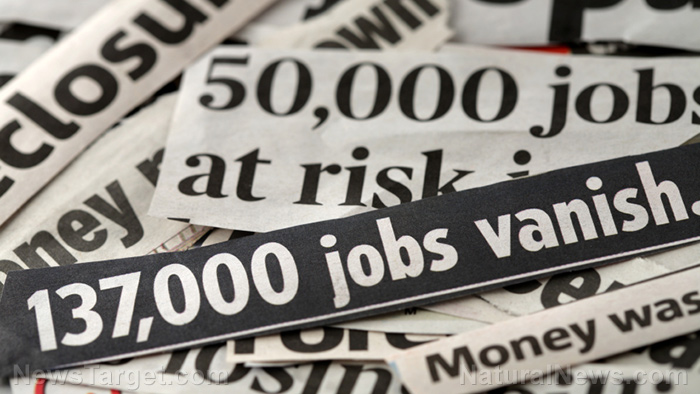- AI could replace millions of jobs by 2030, with 41% of companies planning workforce reductions due to automation.
- Creative and knowledge-based roles, including graphic design and legal secretarial work, are increasingly at risk from AI advancements.
- While 77% of businesses aim to reskill employees, AI’s rapid growth threatens to widen economic inequality and fuel social unrest.
- Ethical concerns arise as AI lacks moral reasoning, raising risks of bias, errors, and misuse in critical sectors like healthcare and law enforcement.
- The WEF advocates for “human-machine collaboration,” but experts warn that AI’s pace may outstrip current predictions and societal readiness.
The World Economic Forum (WEF) has issued a warning that artificial intelligence (AI) is poised to replace millions of human jobs by 2030, with 41% of companies worldwide planning to downsize their workforce as automation takes over.
The findings, detailed in the WEF’s Future of Jobs Report 2025, reveal a transformative shift in the global labor market, with roles ranging from postal clerks to graphic designers at risk of becoming obsolete. While the WEF touts the potential for “human-machine collaboration,” critics argue the report underestimates the speed of AI advancements and the societal upheaval that could follow.
The report, released ahead of the WEF’s annual meeting in Davos, surveyed hundreds of large companies across 22 industries, collectively employing over 14.1 million workers. It found that 77% of businesses plan to reskill and upskill employees to adapt to AI-driven workplaces. However, the reality for many workers is grim: AI is not just automating repetitive tasks but also encroaching on creative and knowledge-based professions once considered secure.
Jobs most at risk
The WEF report identifies several roles most vulnerable to automation, including postal service clerks, executive secretaries, and payroll clerks. Creative professions like graphic design and legal secretarial work are also under threat, as generative AI tools like ChatGPT can now produce original content, draft complex documents, and replicate creative processes with minimal human input. This shift threatens to erode the middle class, exacerbate economic inequality, and fuel unemployment and social unrest.
While AI is displacing millions of jobs, it is also creating demand for new skills. Nearly 70% of companies plan to hire workers with AI design expertise, and 62% intend to recruit employees skilled in working alongside AI. This suggests that the future workforce will be divided between those who adapt to AI and those left behind.
Patrick Wood, editor of Technocracy.news, argue that the WEF’s vision downplays the harsh realities of AI-driven disruption. He pointed out that AI has doubled its capabilities in recent months, suggesting that the report’s predictions for 2030 may already be outdated.
The rapid integration of AI into critical systems raises significant ethical concerns. Automated systems lack the moral reasoning and empathy required for nuanced decision-making, increasing the risks of bias, errors, and lack of accountability in fields like healthcare, finance, and law enforcement. Moreover, the concentration of AI development in the hands of a few corporations and governments heightens fears of misuse, surveillance, and control.
The displacement of workers is expected to fuel mass poverty and social unrest, particularly as industries scramble to adapt to AI’s relentless march forward. Goldman Sachs estimates that AI could replace the equivalent of 300 million full-time jobs globally, with Wall Street alone projected to lose 200,000 jobs in the next three to five years.
A tool, not a replacement
Despite the alarming predictions, the WEF emphasizes that AI should be viewed as a tool to support human work rather than replace it entirely. “Human-machine collaboration” is the buzzword, with the report highlighting the continued importance of human-centered skills. Yet, as AI continues to advance, the line between augmentation and replacement grows increasingly blurred.
For workers, the message is clear: adapt or risk obsolescence. As Avital Balwit, chief of staff at AI startup Anthropic, bluntly stated, “I stand at the edge of a technological development that seems likely, should it arrive, to end employment as I know it.”
The WEF’s report serves as both a warning and a call to action. While AI promises progress, its unchecked advancement could deepen societal divides and undermine democratic freedoms. The challenge lies in ensuring that AI serves humanity—not the other way around.
Sources for this article include:
Disswire.com
CNN.com
Fortune.com
Read full article here


